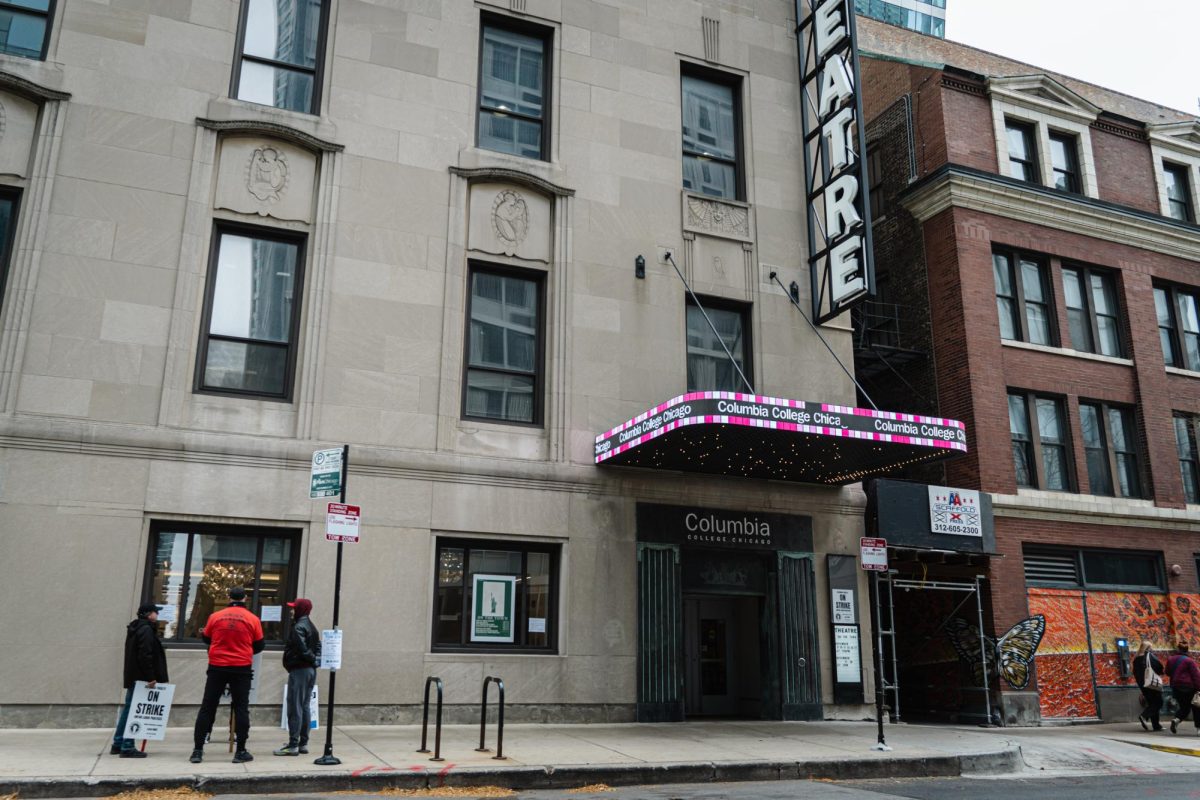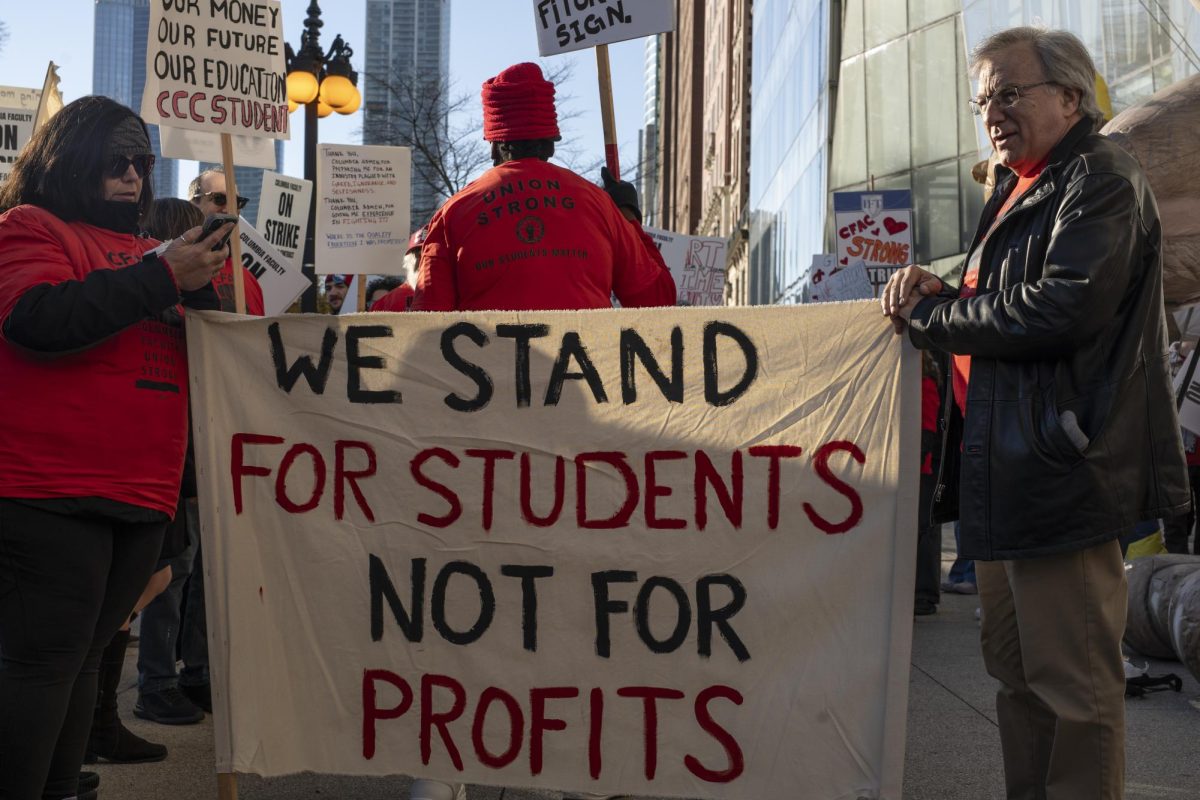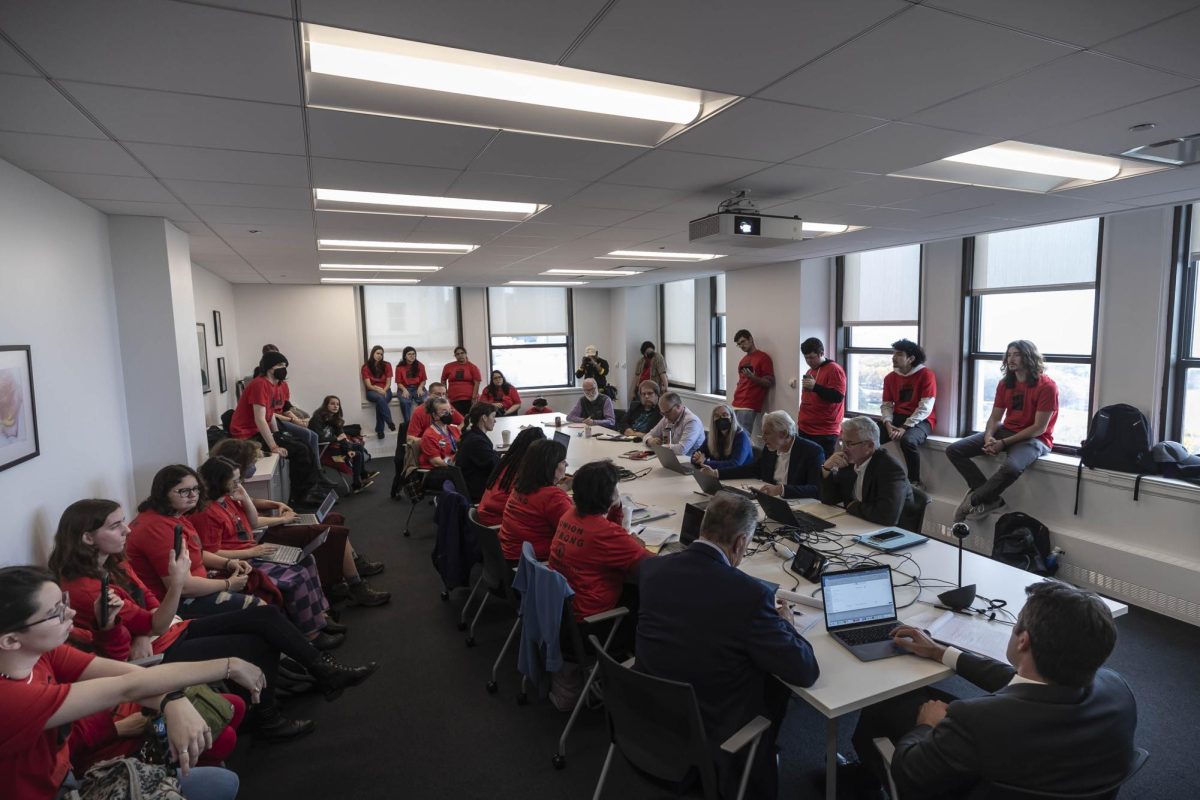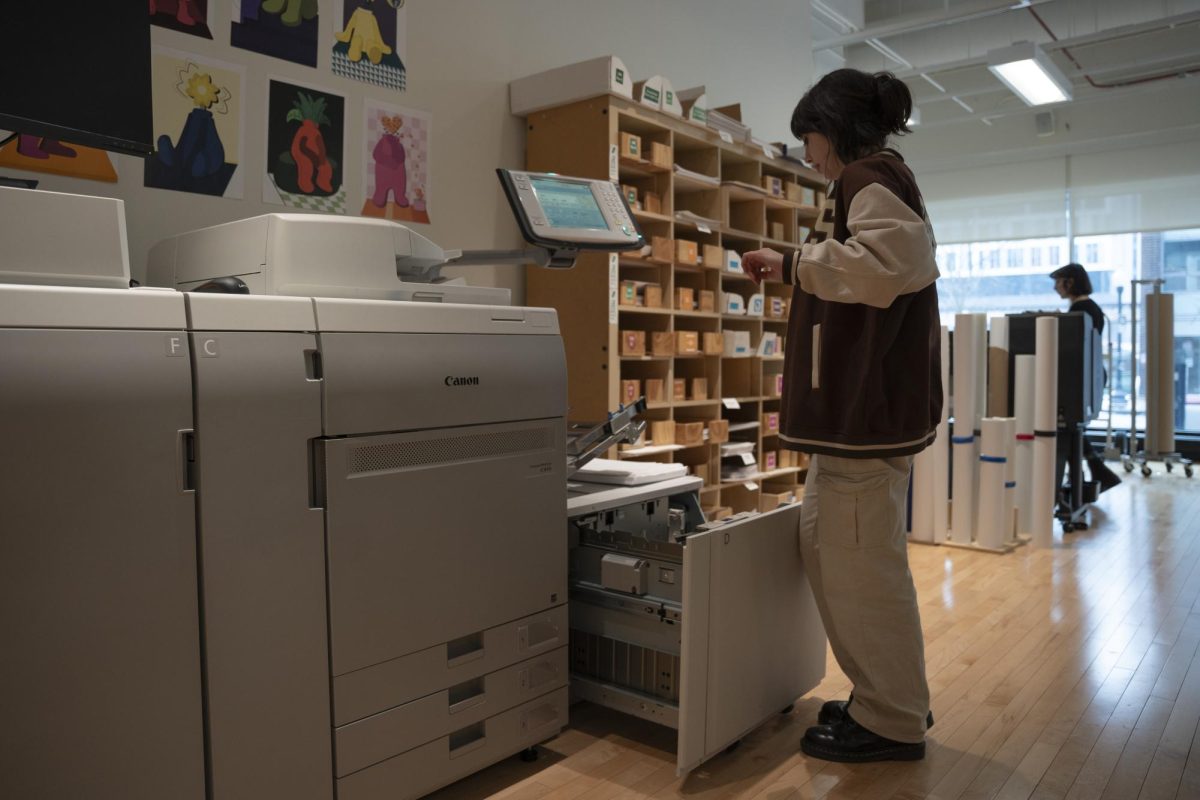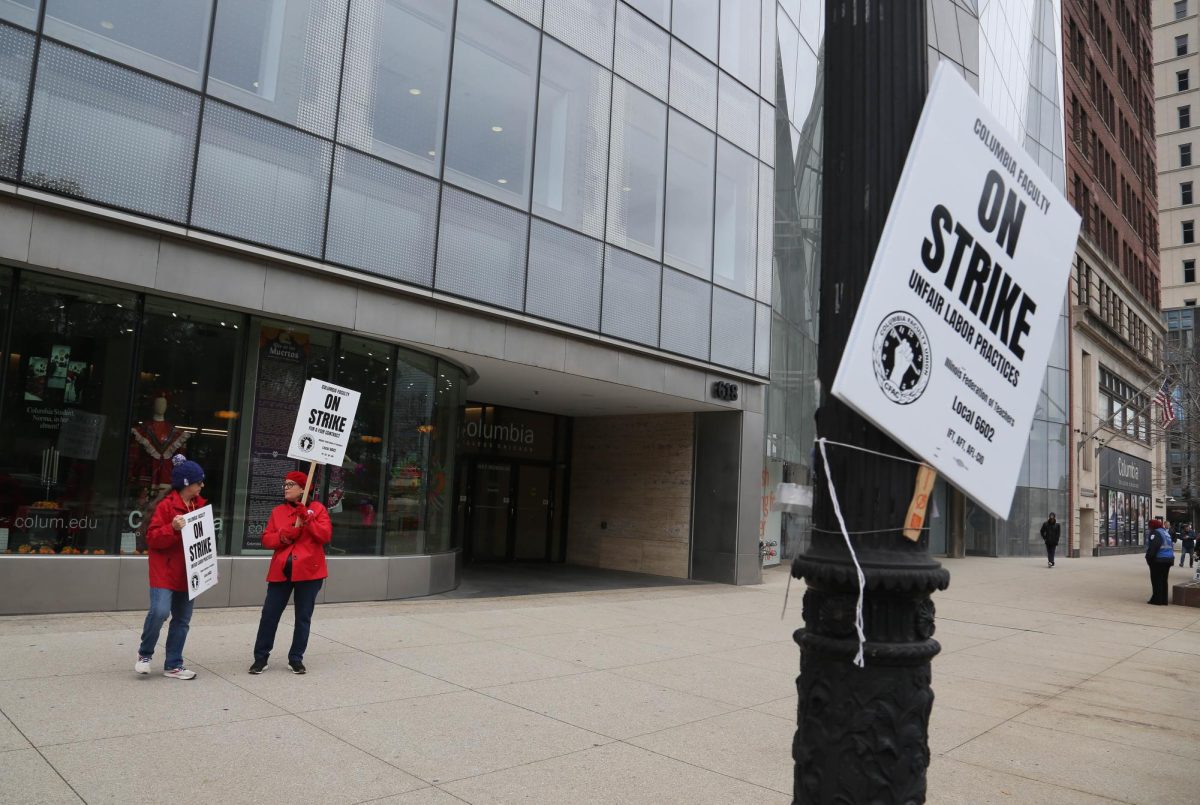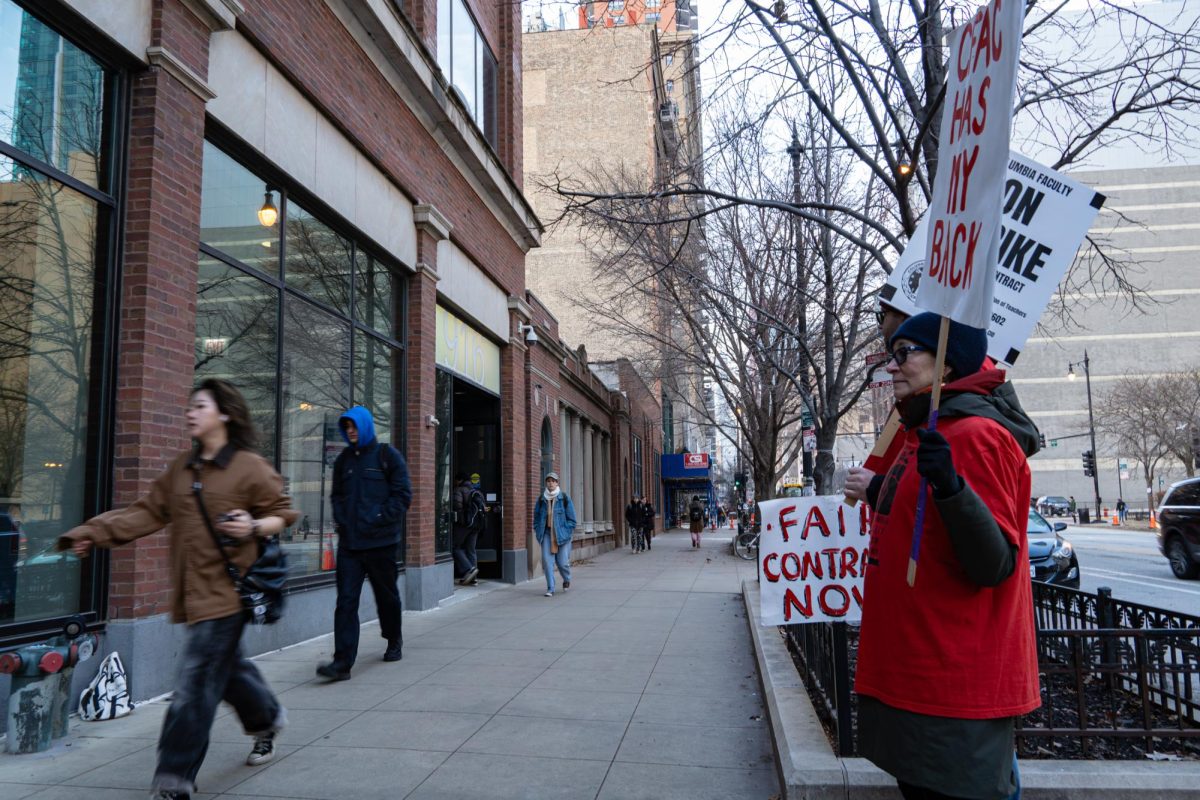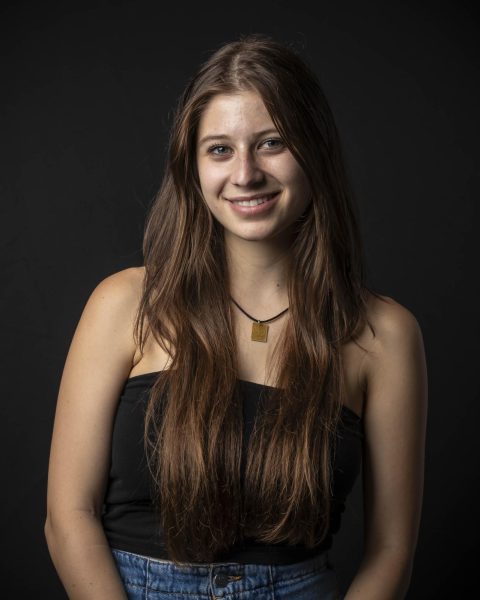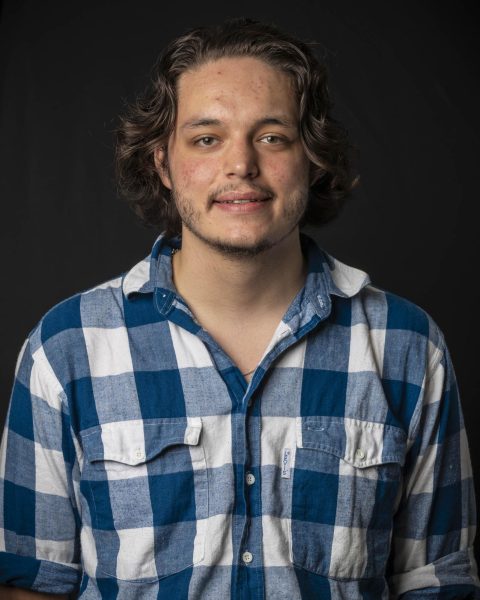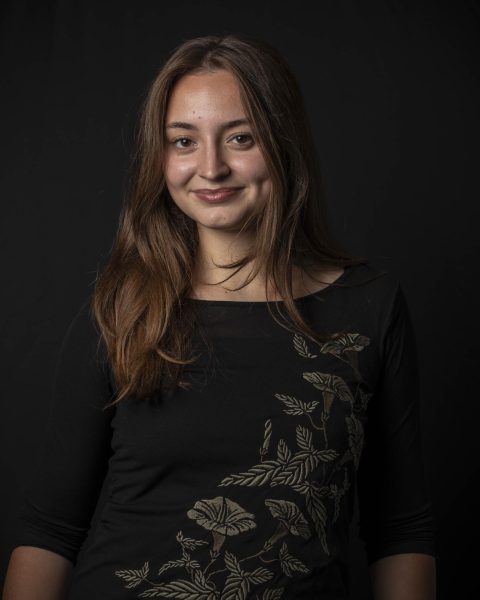As the part-time faculty union strike continues into its eighth day, Kyra Jones, a senior film and television major, could not feel further from the picket line.
Jones, who is in the Semester in LA program for the Fall semester, said her part-time instructors are still teaching.
“The majority of us graduate at the end of the semester, and our professors know this as well and are doing everything in their power to prepare us and continue building our connections out here in LA regardless of everything,” Jones said.
Chief of Staff Laurent Pernot told the Chronicle late Wednesday, Nov. 8 that “some progress” had been made after the two sides wrapped up negotiations for the day. “There is no agreement as of tonight.”
Semester in LA is a 15-week-long program open to students to live in Los Angeles and take classes for credit. Many students who participate are interested in film and television.
This semester course offerings include “Pitching Hollywood,” “Writing the Television Pilot: Long Form Limited Series” and a LA speakers series.
There are 27 students enrolled in “Los Angeles Career Development,” which has a course cap of 30. In Spring 2024, there will be two sections of 25 students. One is already full after registration opened on Monday, Nov. 6, and the other is nearly full.
Similarly to Columbia’s core campus in Chicago, Jones said some professors have pivoted to Zoom until the strike is over.
But overall, Jones said students in Los Angeles have heard little about the strike.
“I have heard nothing from Columbia about how it is affecting or not affecting those in LA,” Jones said. “The only emails I’ve gotten are the blast emails sent out school-wide but the majority of them only affect those in Chicago.”
She said as of Wednesday, Nov. 8, Thelma Vickroy, dean of the Semester in LA program, has “stayed quiet and has not communicated anything with us.” Vickroy is the former chair of the Cinema and Television Arts Department.
The Chronicle sent multiple emails to Vickroy seeking comment on how the SiLA program is navigating the strike but has not received a response. Vickroy is the only full-time faculty member teaching in the SiLA program this fall. The five others are all part-time instructors.
Part-time instructor Rosanne Welch told the Chronicle that she gave her students a “writing night” during the strike. Welch said she hopes the union and the college make a deal in bargaining by Monday, Nov. 13, when the class’s final project is due.
It’s unclear how many part-time instructors across the college are participating in the nearly two-week old strike. Many students have told the Chronicle that their classes have been canceled. Others said their part-time instructors have returned to teaching this week, most often by Zoom.
Mei Ling Marzonie, a senior film and television major, called the strike “honestly just shocking.”
“I am, and have always been, a passionate lover of education,” Marizone said. But, “I have always had issues with this private establishment.”
Dylan Gee, a senior film and television arts major, said he has been relying on CFAC’s student-run Instagram account for strike updates and information.
Gee said Vickroy took over a class for a part-time instructor. She and School of Media Arts Dean Tom Dowd talked to students on Wednesday, Nov. 8 and briefed them on what was happening.
Gee said he is worried about how the college will grade students after the strike is over.
“We just went to classes blind and assumed everything would go as normal until something different happens,” Gee said. “I am worried about how Columbia will handle grades for this semester, as I don’t want to lose academic credibility. I earned my grades, and the Columbia administration is putting that at risk by not working with the faculty.”
He also is worried about the impact the strike is having on his friends and peers back in Chicago.
“Columbia is supposed to offer great hands-on experience for students,” Gee said. “With courses on hold, thousands of students, artists and young people are missing out on opportunities that not only are extremely educational, but are sometimes career changing, if not life changing.”


